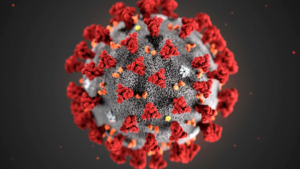
By Luke Bould
Its generally accepted that the COVID-19 pandemic is a disaster for the media industry, but what does that really mean?
Lets look at The Australian free-to-air TV industry.
Over the past 6 financial years, according to PWC, Australian FTA ad revenue has declined by an average of 1% p.a. The number for ‘old-school’ FTA broadcast is actually greater, but the emerging revenues from BVOD have somewhat cushioned the decline. Most forward predictions pre-FY20 projected an average decline of 2-3% for the next 4 years.
Whilst this is challenging, it seems fairly manageable. However the reporting of the state of the media industry, particularly FTA, would have most people believing revenues were declining much faster, which shows the impact even a 1% decline can have on a $3.9b p.a. industry.
Now let’s look at the first half of FY20, keeping in mind COVID-19 reports started to emerge from China around 31 December, so there was no impact of the disease on these numbers. FreeTV recently reported an ad revenue decline of 5.9% year on year for H1 FY20. That’s an extraordinary decline and it turns out that will be the best of the two halves of FY20. If that rate is maintained across the year, that’s $235b wiped from the three networks. But in reality we are likely to see a fall well in excess of 10% and that is catastrophic, particularly for those who are the recipients of the networks’ spending.
Much of the networks expenditure is locked in, such as programming deals with the US networks and studios, and sports rights fees, but anything not locked down is in serious danger. To make matters worse, with the likelihood of a deep recession as many are predicting, there is no guarantee of a fast rebound, or a rebound at all.
From a sport perspective, this translates into networks wanting to renegotiate or end deals – we have seen Nine reportedly wanting to renegotiate its NRL deal, and Seven offering to sell BBL to Ten, an offer Ten politely declined due to cost! Longer term, there simply will not be enough money in the pockets of the networks to maintain the current fees, and the hoped for emergence of the FAANGs, is unlikely to solve the problem – why would they pay more for rights that the incumbents can’t afford?
Sports in FY21 will be dealing with lower ticket and membership revenue due to unemployment, lower sponsorship due to the recession, interest payments to repay the debt they are taking on to survive, and in some cases lower broadcast revenue. Add to this the good governance imperative to create a ‘future fund’ for future disruptions, let’s say that’s circa 15% of revenue, not profit as we know sports are not great at achieving profits . A 33% decline in ticketing and sponsorship, a 20% decline in broadcast revenue, plus interest costs, loan repayments and saving for a future fund could translate to a 40%+ reduction in available cash – that’s a substantial change to any business.
Given the much reported challenges that Seven, Nine and Ten have faced over the last few years, the future is challenging beyond our previous comprehension, both for the media and those that rely on it.
Social feeds
alacria Follow
Connect to Grow Strategic Management Consultants
Exciting news! alacria has submitted a panel for SXSW Sydney: "NextGen Fans: Shaping the Future of Sports Through Junior Engagement & Tech Innovation."
Your vote can bring this discussion to life! #SXSW #SportsTech #FutureOfSportsVote here:
#alacria is seeking a Head of Strategic Consulting, a role crucial to driving the success of our clients in the sports and entertainment sector. The position offers the chance to lead, innovate, and make a significant impact with industry leaders.
Congratulations to @NetballAust for a wonderful victory in the @NetballWorldCup A truly inspirational in back team that continues to se the standard globally.
Its been an amazing 2022 for the alacria team, we are very grateful for the support of our wonderful clients. A year working with leaders in sport & entertainment, helping them find opportunity and new value. To our team, thank you. We are lucky to work with such great people.
"To get the next generation excited about sport is much harder. They are playing games and watching esports, they are really into data. So providing them data about their performance is important"